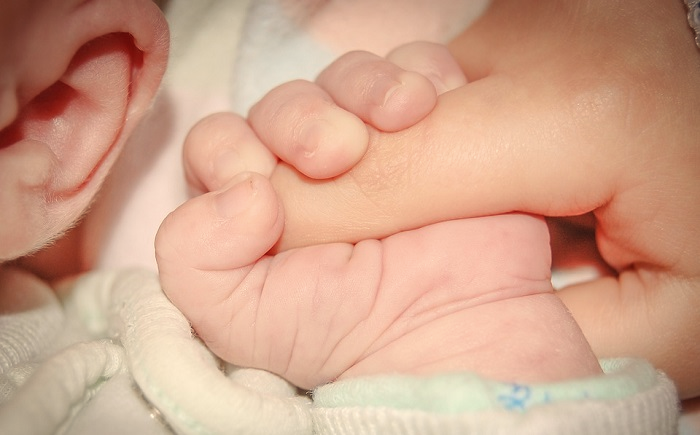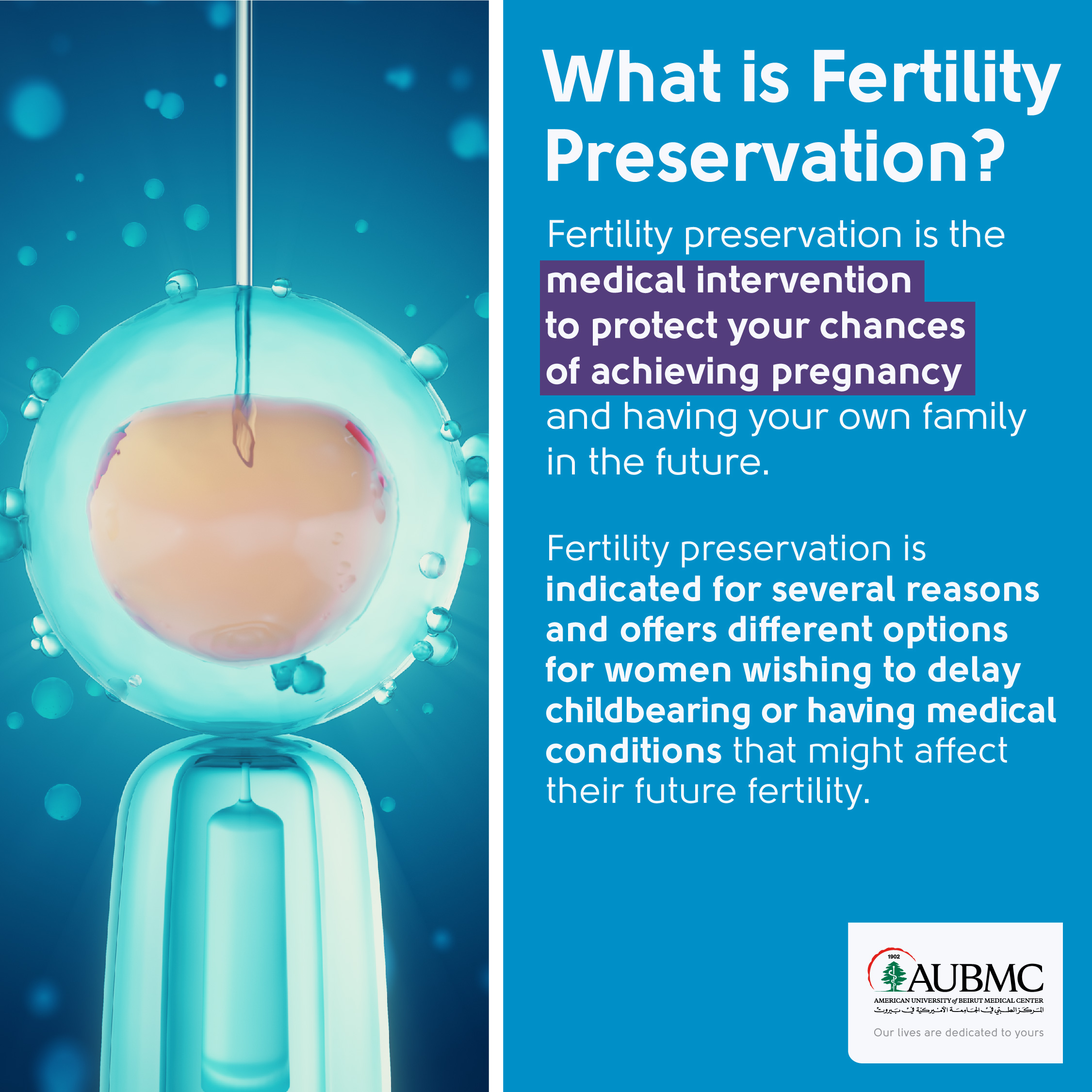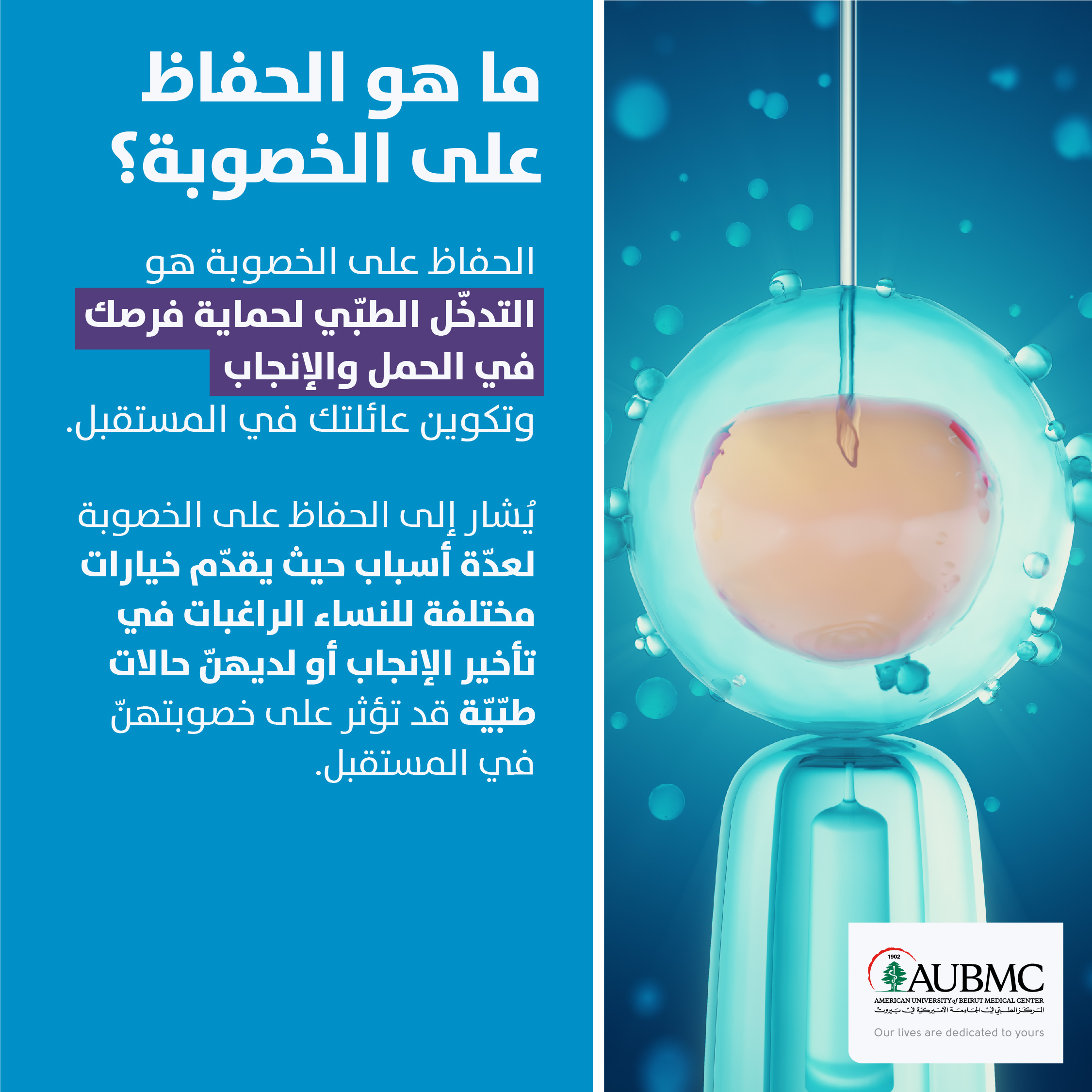Fertility Preservation Program at Women's Health Center
Infertility is defined as not being able to get pregnant despite having regular, unprotected sexual intercourse for at least a year.
Up to one in six couples have difficulty conceiving in the first 12 months of trying.
Fertility preservation is an intervention that protects your chances of achieving pregnancy in the future.
It is indicated for several reasons and offers different options for women who wish to delay childbearing, or for patients who have medical conditions that might affect their future fertility.

The Fertility Preservation Program provides services for both women and men, as well as for children. Our specialists aim to protect your fertility, and help you start or grow your family. Our multidisciplinary team offers individualized counseling, clinical treatment, and rehabilitation to you and your partner.
Our Fertility Preservation Program offers a broad spectrum of fertility preservation options for men and women:

|
| Egg/Embryo freezing (cryopreservation) | Ovarian tissue freezing*
| Ovarian transposition
| Medications (GnRH agonist)
|
|
 
|
| Sperm freezing (cryopreservation) | Testicular tissue freezing*
| | Radiation shielding/Gonadal shielding or Gonadal preservation |
|
* Non-established fertility preservation procedures considered under research (offered under research protocols).
Our Oncofertility Program offers a broad spectrum of fertility preservation options for boys and girls diagnosed with various types of cancer:

|
Ovarian shielding/transposition
| Ovarian shielding/transposition | | | Egg freezing | | | Embryo freezing
| | | Ovarian suppression | Ovarian tissue freezing*
| Ovarian tissue freezing* |
|

|
| Testicular shielding | | | Sperm freezing | Testicular tissue freezing*
| Testicular tissue freezing* |
|
* Non-established fertility preservation procedures considered under research (offered under research protocols).
Who can benefit from fertility preservation?
Fertility preservation is indicated if:

|
- You have cancer
- You have a disease that might affect your reproductive health (such as endometriosis, systemic lupus erythematosus, etc.)
- You will undergo a treatment or surgery that might affect your fertility
- You want to postpone childbearing for social reasons
|
|
 
|
- You have cancer
- You have a disease that might affect your reproductive health such as non-malignant diseases treated with immunosuppression (including inflammatory bowel disease, rheumatoid diseases, and immunosuppressive medications used to prevent rejection in solid organ or hematopoietic transplant recipients)
- You have a testicular injury
- You have a chromosomal abnormality that affects your fertility such as Klinefelter syndrome
|
|
Why preserve fertility in children with cancer?
Some cancer treatments might affect the fertility of children because it can cause:

|
- Damage to organs involved in reproduction, such as the ovaries, fallopian tubes, uterus, and cervix.
- Damage to organs involved in hormone production, such as the ovaries.
|
|

|
- Damage to organs involved in reproduction, such as the testes.
|
|
Browse more brochures below.
 | |

|
For more information, contact The Fertility Preservation Program located on the 7th floor at the Haifa Idriss Fertility Unit - American University of Beirut Medical Center main building. To contact us, please call +961- 350000 ext.: 7951